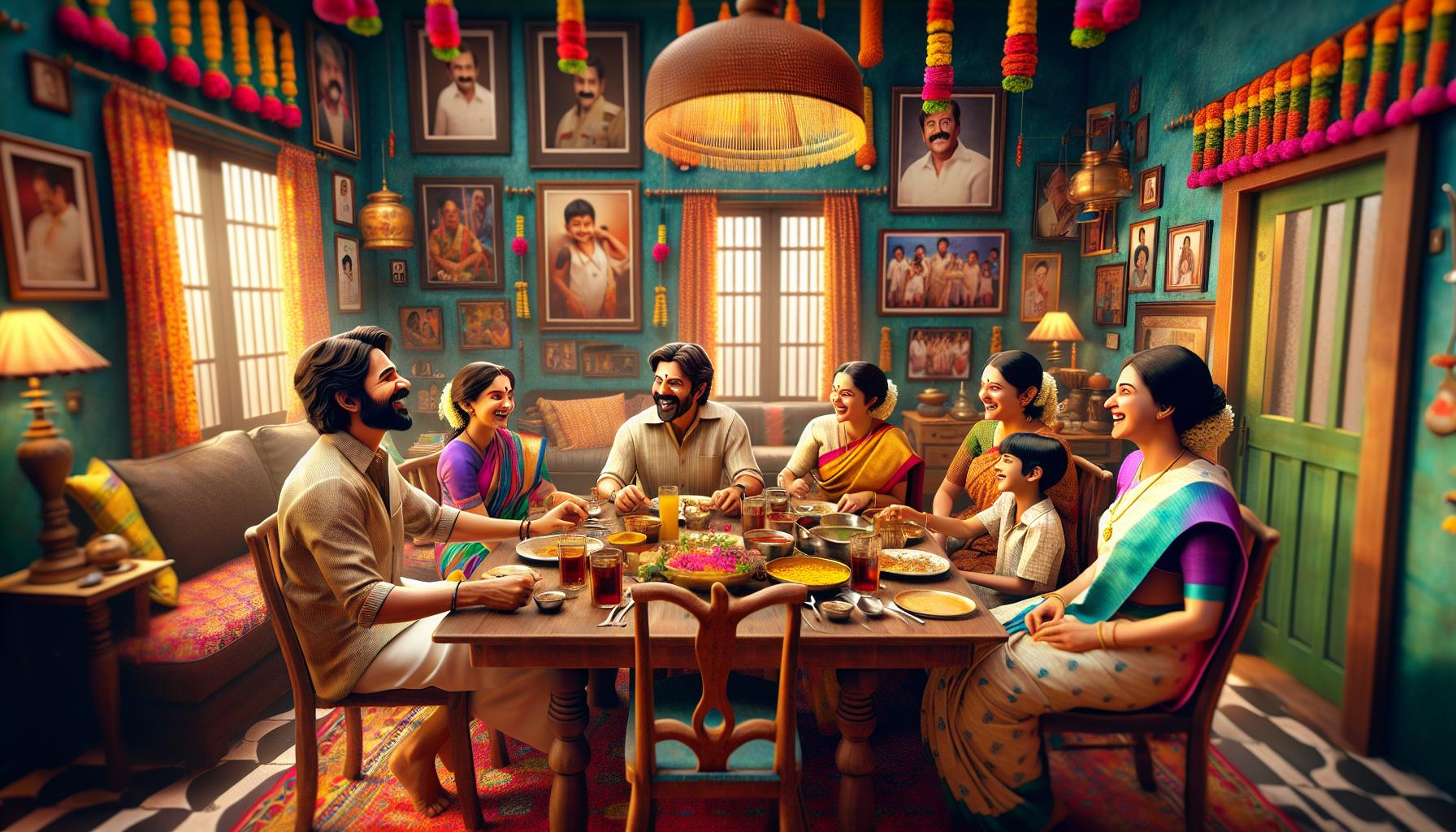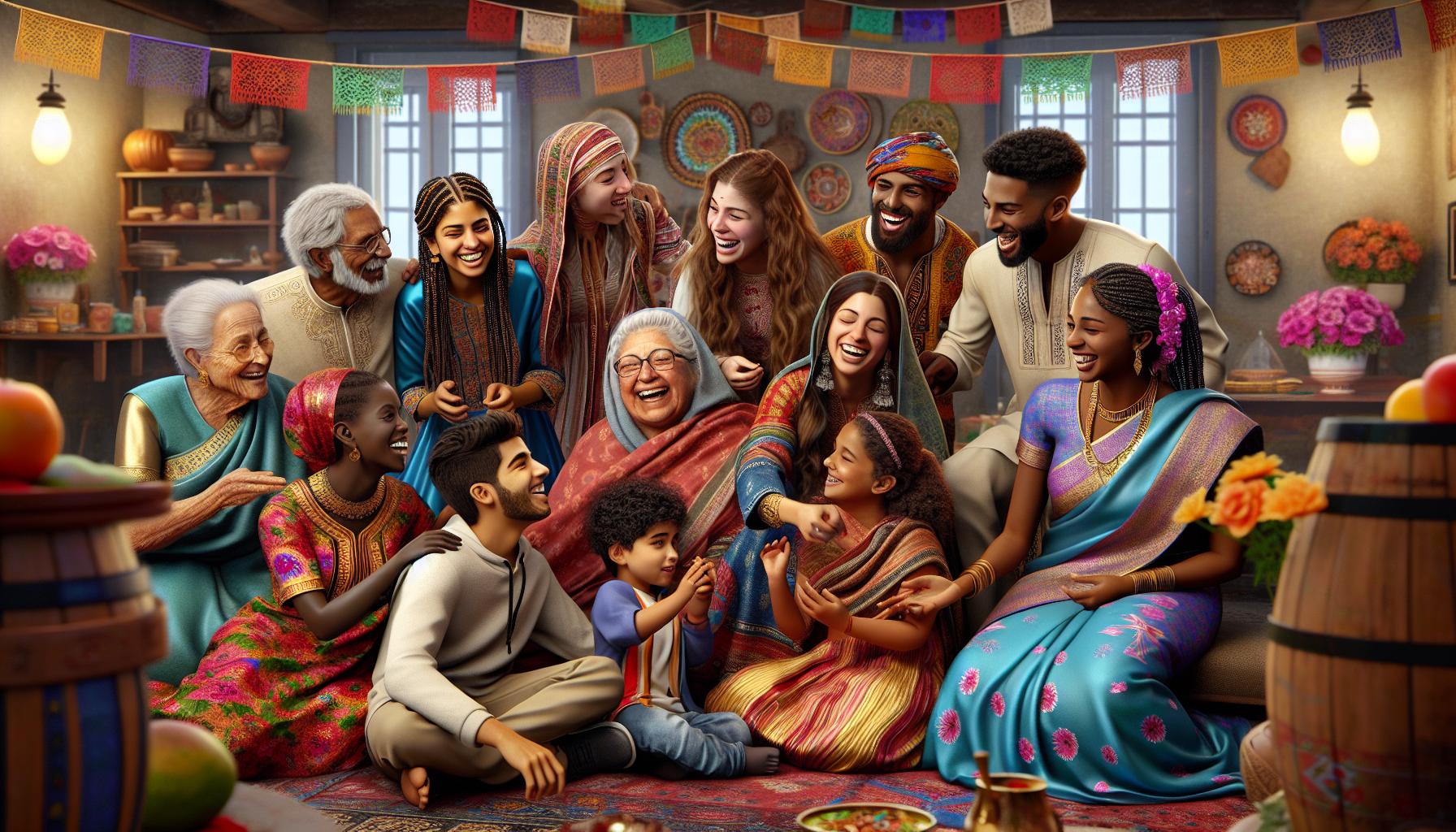Telugu cinema’s love affair with family dramas has created some of the most heartwarming stories ever told on the silver screen. These movies expertly weave together emotions, relationships and traditional values that resonate deeply with audiences of all ages. From tearjerker moments to laugh-out-loud scenes, family dramas in Telugu films have mastered the art of emotional storytelling.
What makes Telugu family dramas truly special is their ability to mirror real-life situations while adding that magical cinematic touch. Whether it’s showcasing the bonds between siblings, the complexities of marriage or the eternal love between parents and children – these films capture life’s precious moments in ways that feel both authentic and entertaining. Add in some catchy songs, stunning visuals and powerful performances and you’ve got the perfect recipe for entertainment that brings entire families together.
What Makes Telugu Family Dramas Special
Telugu family dramas stand out in Indian cinema for their distinctive portrayal of familial relationships and social dynamics. These films capture the essence of Telugu culture while delivering universal messages about love, respect, and family bonds.
Cultural Values and Traditions
Telugu family dramas showcase authentic cultural practices through traditional ceremonies, festivals, and customs. The films incorporate Telugu wedding rituals, Sankranti celebrations, and religious observances that reflect the region’s rich heritage. Characters often wear traditional attire like silk sarees and dhoti-kurtas, complementing the cultural authenticity. The movies emphasize joint family systems, respect for elders, and the importance of maintaining harmony within extended families. Local dialects, proverbs, and folk songs add depth to the storytelling while preserving linguistic traditions.
Emotional Storytelling Elements
Telugu family dramas employ powerful narrative techniques to evoke strong emotional responses. The films feature intense confrontation scenes between family members, tear-jerking reconciliations, and moments of sacrificial love. Musical sequences enhance emotional impact through meaningful lyrics and melodious compositions. Characters express deep-seated feelings through dramatic monologues, creating memorable cinematic moments. The narratives blend humor with serious themes, incorporating comedy tracks that provide relief between emotional peaks. Directors use close-up shots during emotional exchanges to capture subtle expressions and generate audience empathy.
Most Popular Telugu Family Drama Movies

Telugu cinema’s family dramas captivate audiences through compelling storytelling that celebrates familial bonds. These films combine emotional depth with cultural authenticity, creating lasting impressions on viewers across generations.
Classic Family Entertainers
“Samsaram” (1950) established the benchmark for Telugu family dramas with its portrayal of traditional values. “Aanandham” (2001) showcased the complexities of joint family dynamics through remarkable performances by Mammootty and Sneha. “Bommarillu” (2006) redefined parent-child relationships, earning critical acclaim for Siddharth and Genelia D’Souza’s chemistry. “Sankranthi” (2005) depicted intergenerational conflicts within a family structure, while “America Abbayi” (1987) explored family ties across cultural boundaries.
Modern Family Drama Hits
“Attarintiki Daredi” (2013) dominated box office records with Pawan Kalyan’s charismatic performance as a grandson reuniting his family. “Seethamma Vakitlo Sirimalle Chettu” (2013) featured Mahesh Babu and Venkatesh portraying realistic sibling dynamics. “Manam” (2014) united three generations of the Akkineni family onscreen, creating emotional magic. “Drushyam” (2014) blended family values with suspense elements, while “Shatamanam Bhavati” (2017) celebrated traditional family customs through contemporary storytelling. “Middle Class Melodies” (2020) captured modern family relationships with authenticity and humor.
Key Themes in Telugu Family Movies
Telugu family dramas explore recurring themes that reflect societal values through compelling storytelling. These themes serve as foundational elements that shape the narrative structure of these films.
Parent-Child Relationships
Parent-child bonds form the emotional core of Telugu family dramas. Parents demonstrate sacrificial love by foregoing personal comforts for their children’s success. Mothers exhibit unconditional affection through traditional customs like preparing favorite meals or performing religious rituals. Fathers manifest their care through stern guidance mixed with subtle expressions of pride. Films like “Drushyam” (2014) portray parents protecting their children at all costs, while “Brahmotsavam” (2016) celebrates multiple generations coming together during festivals. Modern narratives address evolving dynamics between working parents and their children, reflecting contemporary social changes.
Joint Family Dynamics
Telugu cinema celebrates the extended family system through vibrant portrayals of daily interactions. Large families share meals, decisions and celebrations under one roof, creating multiple storylines. Grandparents pass down traditions to younger generations through folk tales and cultural practices. Films like “Seethamma Vakitlo Sirimalle Chettu” showcase siblings navigating relationships while maintaining family harmony. Family gatherings during festivals become central plot points, highlighting the strength of collective decision-making. Characters resolve conflicts through family councils rather than individual actions, emphasizing the importance of unity. Modern films explore the balance between personal aspirations and family responsibilities within joint family structures.
Notable Directors and Their Contribution
K. Viswanath pioneered emotional storytelling in Telugu family dramas through masterpieces like “Swati Muthyam” (1985) and “Siri Siri Muvva” (1976).
Trivikram Srinivas redefined modern family entertainers with “Attarintiki Daredi” (2013) and “A Aa” (2016), blending humor with traditional values.
| Director | Notable Films | Box Office Success |
|---|---|---|
| K. Viswanath | Swati Muthyam, Siri Siri Muvva | ₹15+ crore combined |
| Trivikram Srinivas | Attarintiki Daredi, A Aa | ₹100+ crore combined |
| Srikanth Addala | SVSC, Brahmotsavam | ₹85+ crore combined |
| B. V. Nandini Reddy | Oh! Baby, Samantha | ₹40+ crore combined |
Srikanth Addala crafted emotional family narratives in “Seethamma Vakitlo Sirimalle Chettu” (2013), exploring sibling relationships with authenticity.
B. V. Nandini Reddy brought fresh perspectives to family dynamics through women-centric stories like “Oh! Baby” (2019).
Key directorial contributions include:
- Integration of classical music in emotional scenes
- Enhanced visual storytelling through traditional ceremonies
- Natural dialogue delivery in family conversations
- Balanced portrayal of multiple character arcs
- Authentic representation of Telugu customs
- Strategic use of flashbacks to develop backstories
- Creative incorporation of festival celebrations
- Innovative treatment of family conflict resolution
These directors established signature styles in portraying family relationships through distinct cinematography techniques camera angles capturing intimate family moments.
Impact on Telugu Cinema and Society
Telugu family dramas transformed the regional film industry by establishing a unique storytelling format that connects with audiences across generations. Box office records demonstrate this impact, with family-oriented films consistently generating higher revenues compared to other genres.
Cultural preservation emerges as a significant outcome of these films. Traditional practices like mangalsutra ceremonies, sankranti celebrations, and joint family customs gain renewed relevance through cinematic representation. Social messaging embedded in these narratives addresses contemporary issues:
- Marriage dynamics between working couples
- Intergenerational relationships in modern contexts
- Women’s changing roles in family structures
- Rural-urban family value differences
The influence extends to fashion trends and social behavior patterns. Costume designs from successful family dramas inspire wedding wear collections, while dialogue delivery styles impact everyday communication.
| Year | Film | Box Office (in Crores) | Social Impact Area |
|---|---|---|---|
| 2013 | Attarintiki Daredi | 187 | Family reunification |
| 2014 | Manam | 45 | Intergenerational bonds |
| 2017 | Shatamanam Bhavati | 33 | Rural family values |
These films create employment opportunities in the entertainment sector. A typical Telugu family drama production employs 150-200 crew members, including local artists, technicians, and support staff.
Tourism benefits from location shoots in traditional settings. Places featured in popular family dramas experience increased visitor numbers, boosting local economies. The global Telugu diaspora maintains cultural connections through these films, creating a bridge between traditional values and modern lifestyles.
Conclusion
Telugu family dramas stand as pillars of Indian cinema creating an enduring legacy that spans generations. These films masterfully weave together cultural values emotional depth and contemporary relevance making them a vital part of Telugu entertainment.
The genre’s ability to balance tradition with modern storytelling continues to captivate audiences while preserving cultural heritage. From pioneering directors to modern storytellers each has contributed to building a rich tapestry of family-oriented cinema that resonates deeply with viewers.
As Telugu cinema evolves these beloved family dramas remain a testament to the power of storytelling that touches hearts brings families together and celebrates the bonds that matter most.




